Cat Kidney Diseases
This article is dedicated to unpacking everything about cat kidney diseases. Cats are awesome and surprisingly very resilient creatures. That is why in all cultures, our feline friends have nine lives.
But, quite often, cats will experience some kidney issues, some of them self-inflicted (eating household plants, for example), and some genetically inherited.
The kidneys play a vital part in an animal’s body by filtering the blood and toxins and producing urine. They are very efficient in helping the body filter out waste and toxic materials, and at the same time to return amino acids, vitamins, glucose, and hormones into the bloodstream.
The kidneys are organs that receive a very high blood flow, and a group of specialized blood vessels filters the blood. The ureters carry out the urine that is produced in the kidneys to the bladder and by the urethra from the bladder to the outside.
Some cats throughout their lives will experience some type of kidney problem. Many cats suffer from chronic kidney disease (CKD) and acute renal failure (ARF).
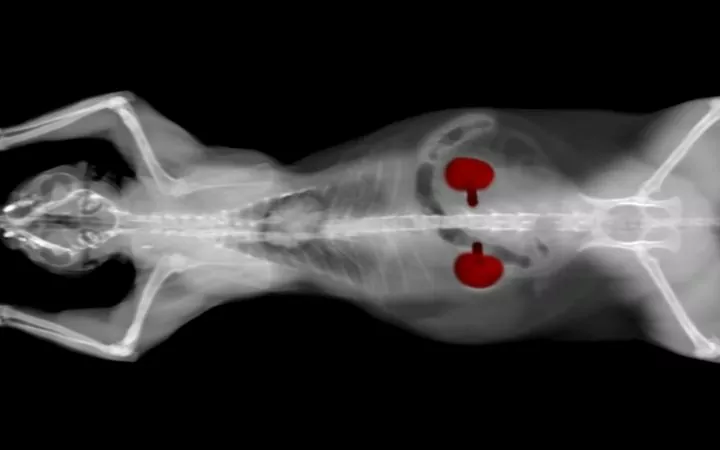
Types of Feline Kidney Diseases
The main kidney issues that might occur in our feline friends can be easily treatable and life-threatening.
Some of the most commonly seen kidney diseases in cats are:
- Acute renal failure
- Chronic kidney disease
- Glomerulonephritis
- Kidney stones
- Urinary tract infections
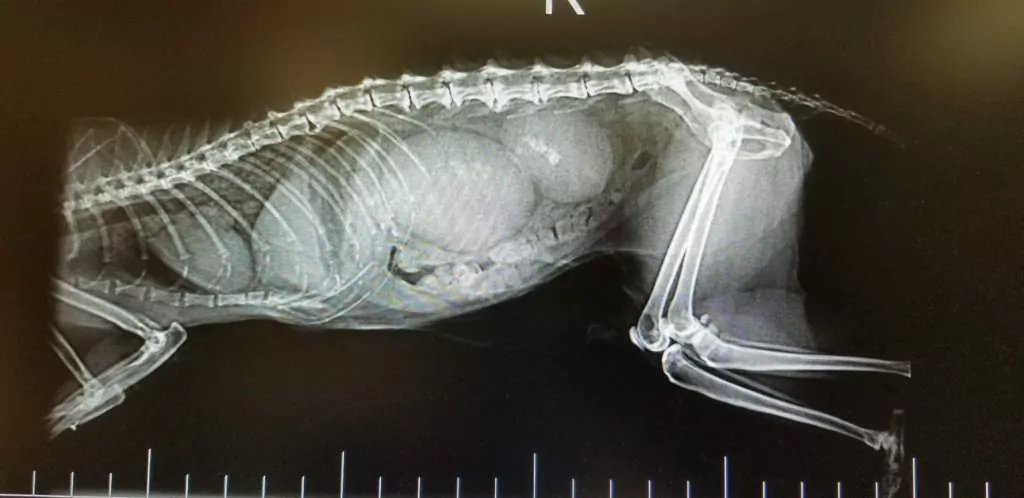
Urinary tract infections in cats usually occur when bacteria will travel up the urethra of a cat and will enter the bladder. In perfect conditions, the urine in the bladder should be sterile. But, if a bacteria enter the bladder, it will multiply and eventually cause a urinary tract infection.
Cats that experience urinary tract infections will try to urinate more often but will pass only small amounts of urine. They will strain to urinate, might cry while attempting to urinate, and there might be blood in the urine. Many cats will try to avoid the litter box and urinate elsewhere in the home.
Cats are animals that have highly acidic and concentrated urine that predispose them to form uroliths or stones in the urinary tract. The formation of uroliths may result from diet, malnutrition, infection, inflammation, or the cat’s individual pH level.
Glomerulonephritis in cats is a type of kidney disease that is characterized by the presence of inflammation in the glomeruli. The glomeruli are tiny filters inside the kidneys that have the role of filtering the blood.
This condition occurs when immune complexes (antigens and antibodies) should be filtered outside of the body but become trapped inside the glomeruli. When this happens, the cat’s body activates its immune defense system, resulting in further damage to the fragile glomeruli.
Chronic kidney diseases in cats are the most common form of kidney disease seen by veterinarians all over the World. Most commonly, it occurs in older cats over ten years of age, but it can occur at any age.
There are multiple causes for chronic kidney disease, but by the time we diagnose the condition, the leading cause might not be present anymore. But the damage is done.
The best way to detect chronic kidney disease in its early stages is by performing a urinalysis. But, the problem is that animals, especially cats, will not show any signs or symptoms of the disease until it’s too late. The only way to detect chronic kidney disease in its early stages is by a routine wellness check.
Acute renal failure in cats develops very suddenly and, in most cases, is followed by the ingestion of some form of toxin. The most common toxins that can lead to acute renal failure are pesticides, cleaning products, antifreeze, household plants, human medication, etc.
Other reasons that can lead to acute renal failure in cats are physical trauma (car accidents, broken pelvic bones, or a burst bladder), vomiting, diarrhea and blood loss can make changes in the body’s fluid dip, kidney infections, FUS (feline urinary syndrome, or blockage of the urethra), heart disease and high blood pressure.
If diagnosed in time, in most cases, acute renal failure is reversible.
Signs and Symptoms Associated With Cat Kidney Diseases
The signs and symptoms of chronic kidney disease in cats can be very mild at first and go unnoticed. In most cases, the condition is progressive, and because of this, the early signs are very easy to miss.
In rare cases, the symptoms may develop very sudden (this might happen if, for example, a cat with chronic kidney disease is deprived of water).
Many of the clinical signs and symptoms in cats with chronic kidney disease are very non-specific and arise from accumulating toxic substances in the bloodstream. Some of the signs might arise from the body trying to adapt to the condition.
The most commonly seen clinical signs and symptoms of chronic kidney disease in cats are:
- Weight loss
- Decreased appetite
- Lethargy
- Polyuria (increased thirst)
- Polydipsia (increased urination)
- Poor coat condition
- Vomiting
- Hypertension (high blood pressure)
- Halitosis (bad breath)
- Anemia
- General weakness
In most chronic kidney disease cases in cats, the first signs of the disease, such as weight loss and poor coat management, are dismissed by the owners because they think their cat is getting older and that this is the normal progress of age.
Also, in the initial stages of kidney disease, the kidneys’ healthy parts are working overtime to try to eliminate waste products and toxins as much as they can. Because of this, cats drink large amounts of water and excrete large amounts of urine. This is called compensated renal failure.
After two-thirds of the kidneys become affected and fail to function, there is rapid onset of symptoms and then the disease.
Chronic Renal Failure vs. Chronic Kidney Disease
Veterinarians today prefer to use the term “chronic kidney disease” over “chronic renal failure” in cats because, in most cases, chronic kidney disease can exist without renal failure.
Also, most cat owners feel discouraged when they hear the term failure when their pet is sick.
Renal failure is used when there is a definitive diagnosis that 75% or more of the nephrons of both kidneys stopped working and are unable to concentrate urine.
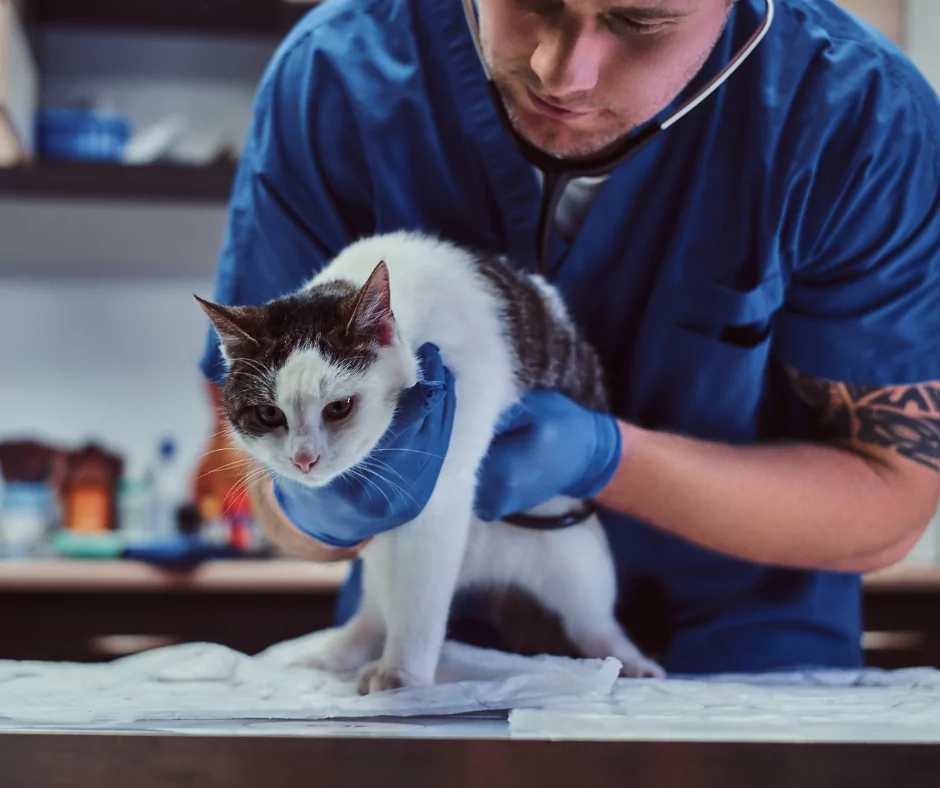
The Stages of CKD
There are four stages of chronic kidney disease described in the veterinary literature. Every step describes the severity of the symptoms and the seriousness of the condition.
The stages of the disease are described by the serum creatinine levels:
- Stage 1 – Nonazotemic CKD
Serum creatinine < 140 mcmol/L
- Stage 2 – Mild renal azotemia
Serum creatinine 140 – 250 mcmol/L
- Stage 3 – Moderate renal azotemia
Serum creatinine 251 – 440 mcmol/L
- Stage 4 – Severe renal azotemia
Serum creatinine > 440 mcmol/L
How Does CKD Affect my Cat?
In general, chronic kidney disease is an exhausting condition for any cat. Along with the decrease of their kidney function comes the loss of appetite and the non-grooming. This means that the affected cat will lose weight, and its coat will be poorly managed. This will appear as the cat not taking care of itself.
Many cats will increase urine intake because they will start to urinate more frequently but with more diluted non-concentrated urine. This means that they might not use the litter box quite often, and there might be accidents in the home.
As the disease progresses, the cat will develop halitosis or bad breath. This is due to the build-up of uric acids in the bloodstream. Many cat owners report that their cat’s breath smells like urine or ammonia. The bad breath might progress in the development of ulcers in the mouth.
Some cats with chronic kidney disease develop anemia or decreased number of red blood cells. This happens because the condition reduces the body’s ability to produce new fresh red blood cells. This will lead to lethargy and weakness, pale or white gums.
The Treatment of Cat Kidney Diseases
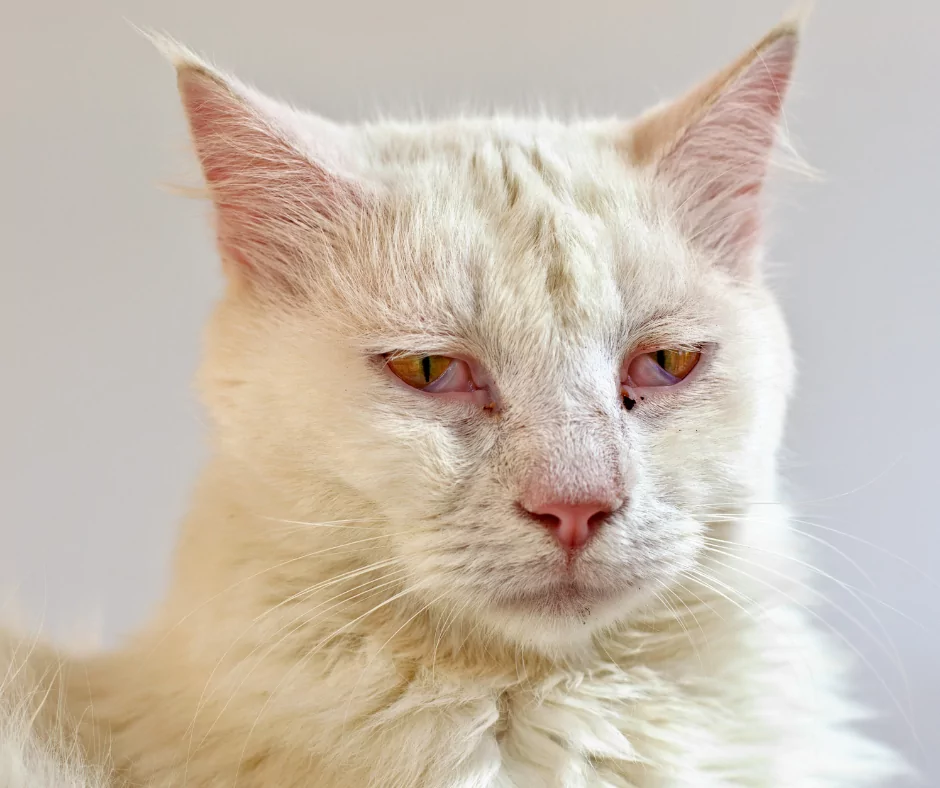
The treatment of chronic kidney disease in cats will vary from the severity of the disease and the available remedies in your area. The severity of the treatments will also vary from all the blood test results. Most cats respond very well to diet changes and renal supplements.
Every veterinarian will prescribe a unique combination of treatments for every cat.
Some of the treatments to manage chronic kidney disease in cats include:
Specialized Diet for CKD
These diets can be prepared at home or bought as a premade medical dry food. They include low protein and low phosphorus to help lower the waste products in the bloodstream
Phosphate Binders
Despite the specialized diet, some cats still have high phosphate levels in their bloodstream, so oral supplements to bind the excess phosphate (such as aluminum hydroxide) are recommended.
Antibiotics
Some cats with chronic kidney disease respond well to antibiotics, although this mechanism is still not well understood. Also, many cats with CKD often develop bladder infections, so frequent urinalysis is recommended.
Potassium Supplements
Cats with chronic kidney disease lose a lot of potassium through the urine. This will lead to stiffness, muscle weakness, poor coat quality.
Antiemetics
When a cat with CKD loses appetite, it progresses to vomiting. In these cases, it is advised to give antiemetics until the appetite is restored and under control.
Drugs for Lowering Blood Pressure
Many cats with CKD have high blood pressure, leading to more damage to the already fragile kidneys.
Anemia Treatment
The kidneys communicate with the bone marrow and initiate the production of red blood cells. Many cats suffering from chronic kidney disease are anemic because of a lack of stimulation to the bone marrow from the kidneys. Your veterinarian might prescribe your cat medication to stimulate the bone marrow to produce fresh red blood cells.
Prognosis
Some cats diagnosed with chronic kidney disease will respond very well to the treatment available for their condition. But other cats might not. The prognosis for cats with CKD is quite variable.
Studies have shown that the early detection of chronic kidney disease in cats is paramount for a successful treatment. It is not a 100% cure for the disease, but removing the trigger of the disease is very important.
Direct attacks on each symptom have shown to be in favor of the patient. There is evidence that if the kidney disease is diagnosed early and treatment is started, it favors the quality of life and survival of the cat.
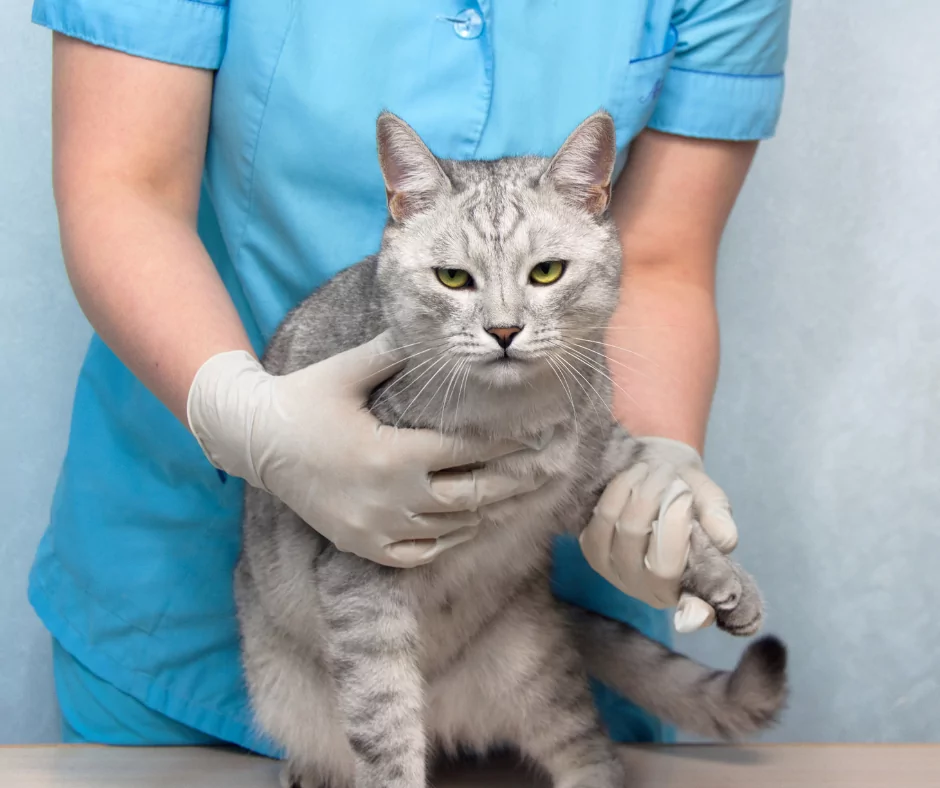
Summary
Chronic kidney disease or chronic kidney failure is a condition seen in cats that can be fatal if not diagnosed in its early stage. Definitive treatment is not available, but with early detection and on-time management of the symptoms, cats with CKD can live long and happy lives.
If you notice that your cat started to lose weight and stopped grooming, schedule a visit to your vet. If your cat is vomiting more than usual or urinating in strange places, schedule a visit to your veterinarian. If your cat starts to drink a lot of water and her breath smells bad, schedule a visit to your veterinarian.
Chronic kidney disease in cats is a severe condition that can occur from many factors, including hereditary. If left unmanaged, it is a painful and fatal condition for our feline friends.
If you enjoyed this topic and would like to know more about the kidneys. You can read our article on “What are the signs of kidney failure in dogs?”
